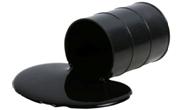Prices

December 1, 2014
Keystone Pipeline: The Opposing View
Written by Peter Brebach
Steel Market Update has written a number of articles about the Keystone Pipeline. The pipeline has not been completed due to politics and environmental issues. We received an article from Peter Brebach, CEO of Iron Angels of Colorado which takes a look at the other side of the issue from an economic and environmental perspective:
The Keystone XL pipe line has been in and out of the news for years. The Canadians (TransCanada) want to build it, most Republicans and most industry people are for it, while most Democrats and practically ALL environmentalists are against it. Most of the arguments for it are based on hype and outright falsities, while some of the arguments against it are over-stated. This article is intended to bring some clarity to this subject.

Now let’s talk about the economics. From day one, the main claim in favor of the project was that it would help the US reach energy independence. Apparently, being dependent on Canada does not count. Furthermore, it was claimed that the pipeline would create vast numbers of jobs. The main and first proponent of that argument was Gale Norton, then Secretary of the Interior under George W. Bush (some of you greybeards might remember her as James Watt’s right hand at Interior under Ronald Reagan. There was talk of 20,000 plus construction jobs and 5 -10,000 permanent jobs. Obviously, both numbers were highly inflated.
Interestingly enough, the pipeline played an important part in the recent elections. To state just a couple of examples: Cory Gardner, the newly elected US senator from Colorado, accused his opponent, then Sen. Mark Udall, of being anti-job creation by being anti-pipeline. The fact is that the Keystone was never supposed to run through Colorado, and worse, it would directly compete with the oil produced in Colorado (Weld county has more active rigs than any other county in the US). Strangely enough, Mr. Udall never made those counterpoints, which is probably why he lost the election. The other example involves Louisiana. Democratic Senator Mary Landrieu is fighting for her political life and is involved in a run-off against her GOP opponent. The day after the election, she floated a pro Keystone bill in the US Senate, apparently in an attempt to convince those very few people in her home state who don’t already know that nearly 90% of her campaign contributions come from the oil and gas industry. Mind you, the Keystone is not intended to touch Louisiana either and, obviously, if it did, the oil would also compete with that state’s own production. The bill failed, but only by one vote, and there is no doubt that another attempt will be made once the GOP has the necessary 60 votes (and it will probably be vetoed by President Obama.). Technically, the Department of State is where this decision should be made.
The shale revolution in the US put a major dent into the pipeline plans, because the increased production of oil in the US makes the independence argument look a little outdated. Forecasts by various experts now say that the US is going to become energy-independent within the next two to three years (or sooner). In addition to the oil, the shale plays also produce a good amount of natural gas, most of which is used to replace coal and some to replace oil. As a result, the rhetoric around the Keystone has changed quite a bit. The Canadians are the ones who now proclaim the loudest that this project would be good for the US. Should we maybe be the ones to decide what is good for us? Also, the Canadians have started to threaten that they will look for other potential customers. Really? If you look at the map, shipping the oil to the east would be cost-prohibitive, while going west (e.g. China) would create some serious problems with Canada’s First Nations, their indigenous people, just to name the most obvious. So, where are they going to go with that oil, north?
Now add the recent decline in world oil prices, exacerbated by OPEC’s decision last week not to reduce their production. This is a classical game of chicken, and the question is who is going to blink first – the weaker OPEC members (everybody but S. Arabia) or the US shale producers? Or will it be the Canadian tar sands producers? Major oil companies like France’s Total have sold their interests in the tar sands due to increasing costs and diminishing returns, as new projects have proven to be cost prohibitive, even before the most recent events.
The last point which makes the independence argument look rather ridiculous and even embarrassing is that the fact that the products resulting from the oil being refined along the Texas Gulf coast will be destined for export. I kid you not – export. So, we are gaining energy independence by refining imported oil and shipping gasoline overseas? If the purpose were to keep the Gulf coast refineries busy, I am sure there are easier ways to do that!






